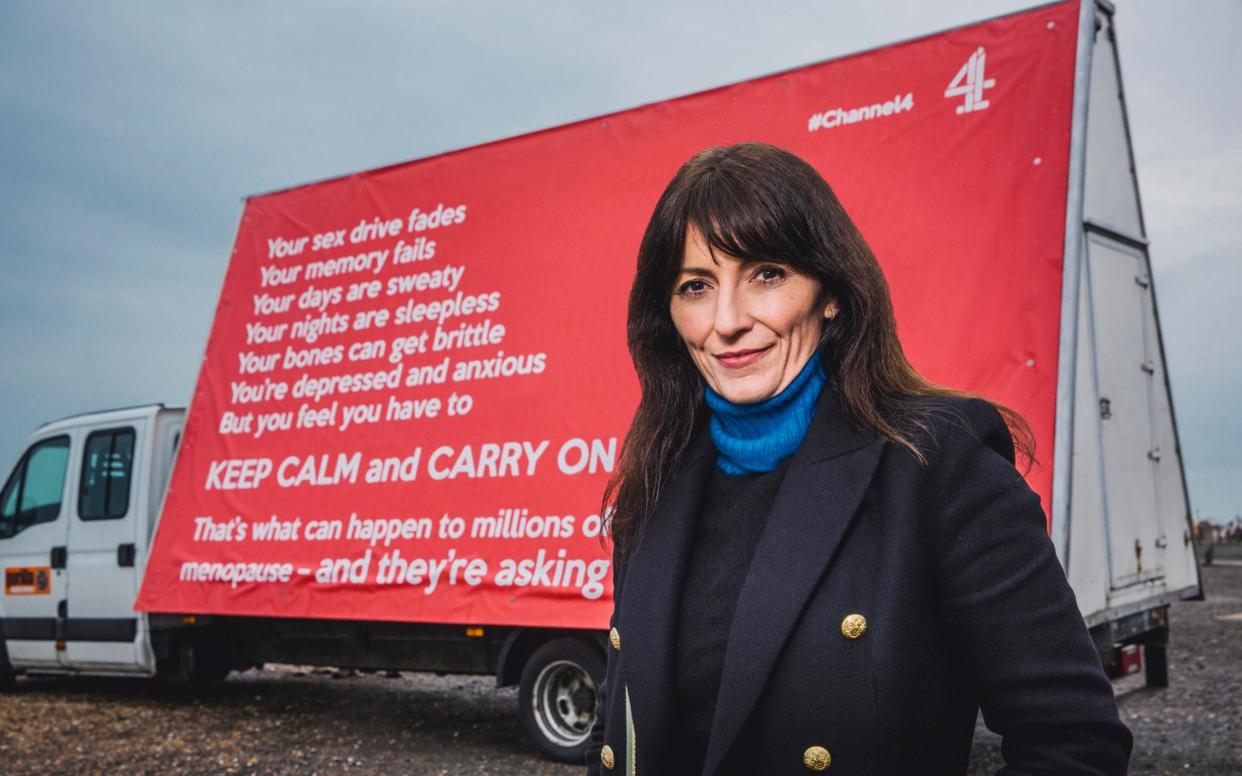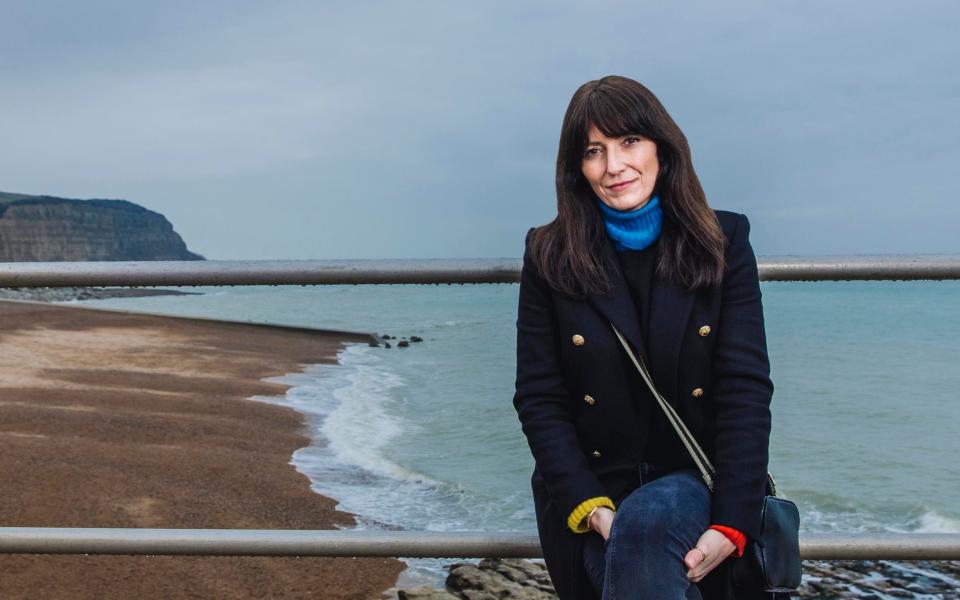Davina McCall: Sex, Myths and the Menopause, review: a cause worth getting angry about

- Oops!Something went wrong.Please try again later.
- Oops!Something went wrong.Please try again later.
- Oops!Something went wrong.Please try again later.
“If men had menopause we’d have fixed it by now,” said Baroness Sayeeda Warsi halfway through the excellent Davina McCall: Sex, Myths and the Menopause (Channel 4). Energised by a punk soundtrack, it was an angrier documentary than Mariella Frostrup’s comradely 2018 BBC film, The Truth About the Menopause. And understandably so. The appalling way menopausal women have been treated by a supposedly enlightened society is enough to give anyone a hot flush. But we’re only just learning how to express our righteous rage at the injustice.
McCall called out the appalling lack of medical knowledge surrounding an event which will affect most women at some point – featuring a range of symptoms that range from mild hair loss through brittle bones, incontinence, brain fog and insomnia, to extreme anxiety, depression and suicidal ideation.
Yet McCall told us that menopause isn’t even part of a GP’s essential training. In practical terms, studies show that when women approach their doctors experiencing anxiety and depression in the run up to the menopause, two thirds of them are offered antidepressants instead of Hormone Replacement Therapy (HRT). According to the NHS, women experiencing such symptoms should be offered HRT as the first response.
What women aren’t told to expect is the appearance of perimenopausal symptoms up to a decade before they turn 51: the average age for women’s periods to stop. McCall spoke frankly about the shock she felt after a sleepless night aged just 44. “It was January 2012,” she said. “I was at a photoshoot in Prague and one night I was suddenly unable to sleep. I felt like I’d aged 10 years overnight.” The following day she experienced such bad hot flush in a make-up chair she asked the make-up artist if the chair was heated.
When McCall realised what was going on she says she felt “quite washed-up and unable to talk to anybody”. She was frustrated and tearful. But – hurrah! – then she got angry at “how badly women have been served by science”.

Like Frostrup, McCall believes more women should be taking HRT. But she did a better job of explaining why we’ve all been led to believe overhyped headlines about its links to breast cancer. While conceding that rolling about in a ball pool to help viewers visualise the statistics looked "silly", she then used the balls effectively to help her break down the statistics. HRT increases the risk of breast cancer by 0.4 per cent. Or: four balls in a thousand.
Instead of leaving worries about that old study dangling, she then explained exactly why its authors drew the conclusion that HRT would increase the risk of breast cancer by 26 per cent and cause the incidence of heart disease and blood clots to spike. It was because the women included in the study were, on average, 12 years past their menopausal years. We also learnt that, because of these unfounded fears, more than 50 per cent of women taking HRT stopped taking it the following year.
McCall admits she was also resistant to taking HRT. She even lied to her friends and pretended she didn’t take it. But here she casually waved her patch at the camera and said she was thrilled to learn that the hormone boost reduced her risk of heart disease, diabetes and dementia. We saw scans of the protein that clogs the brain in dementia patients and heard how oestrogen might prevent that build up.
Fear of HRT is one of the reasons that a third of menopausal women don’t even approach their GP. Instead, these women are turning to the ever-expanding snake-oil aisles of the supermarket. I enjoyed McCall’s brisk dismissal of all the herbal remedies which are only likely to relieve women of their money. I laughed out loud at the magnets (selling for £39.99 when I checked on Amazon) that women are meant to stick in their pants to prevent hot flushes. There is no evidence to suggest using the item that McCall snorted was “a fanny magnet” helps with the menopause. Although several women have reported getting stuck to the supermarket checkout.
McCall lined up some famous friends (including fellow presenters Zoe Ball and Gabby Logan) to reduce stigma by talking openly about their mood swings, itchy skin, spots and brain fog. But it was the regular women who were most moving: from the Essex office manager who went through the menopause aged just 12 to the former teacher who reinvented herself as a fashion designer after experiencing the loss of her fertility as the death of her former self.
The programme ended with a release of joy after all the fury. McCall revealed that the most common internet search related to her topic is: “Can women still have orgasms after menopause?” She then spoke to Samantha Evans, a former nurse and founder of the Jo Divine sex toy store. Evans offered warm, funny advice on the correct lubricants to combat vaginal dryness and McCall spoke up for vaginal oestrogen which can prevent the soreness caused by thinning tissue known grimly as “vaginal atrophy”. How long can women enjoy a satisfying sex life? Well, Jo Divine’s oldest customer is 95. “That gives me hope!” laughed McCall. She won't be alone.
There will be some reluctance to watch this programme, thanks to the presence of the divisive McCall. I have friends who think she’s smug or not funny or “just bangs on about fitness levels that aren’t attainable for normal women”. But I’d urge them to think again. McCall’s cause is too important to get filed along with any minor irritation she might have caused to reality TV fans. In this programme, she’s on our side: engaged, informative and giving us permission to feel furious. Forget Big Brother. McCall just turned into the nation’s butt-kicking Big Sister.

